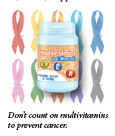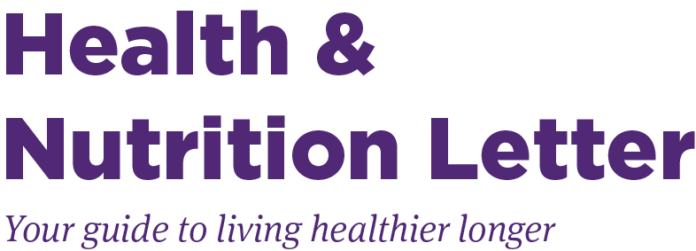Diet May Impact Antimicrobial Resistance
Antibiotics have saved millions of lives, but resistance to these drugs in on the rise. Antimicrobial resistance is considered likely to be a major cause of death worldwide in the coming decades. Humans can carry antibiotic resistance in our microbiome (the bacteria and other organisms that live in and on our bodies). Since diet helps shape the gut microbiome, researchers at University of California, Davis, set out to examine the relationship between diet and antimicrobial resistance.
Researchers compared reported dietary intake of 290 healthy adult participants with genetic analysis of their gut microbiome. Individuals who consumed the most dietary fiber had the fewest antimicrobial resistance genes in their gut microbiome. They also had more of a beneficial family of anaerobic bacteria in their guts.
The authors then employed machine learning to examine which of 387 dietary, physiological, and lifestyle features were associated with lower levels of antimicrobial resistance genes in the gut microbiome. They found an association with consuming a greater diversity of minimally processed plant foods.
These data suggest diet may be helpful in minimizing the development of antibiotic resistant bacteria. Its findings are in line with recommendations to eat a variety of minimally processed plant-based foods, including plenty of naturally fiber-rich fruits, vegetables, legumes, whole grains, nuts, and seeds.
Randomized Trial Finds Multivitamins Do Not Prevent Cancer

In a randomized clinical trial, daily multivitamin-multimineral (MVM) supplements (commonly called multivitamins) did not significantly reduce the incidence of cancer in older men and women compared to a placebo. The study randomly provided either a MVM supplement or a placebo to over 21,000 cancer-free U.S. adults aged 60 and older for five years. During an additional three-and-a-half years of follow-up, there was no significant difference in incidence of breast cancer or colorectal cancer between the intervention and control groups. There was also no effect seen on all-cause mortality.
MVM supplements are the most common dietary supplement taken in the U.S. They typically provide at least 100 percent of the recommended daily value of many essential vitamins and minerals. The only large-scale trial testing MVMs on clinical outcomes (the Physicians’ Health Study II) found MVM use had a borderline effect on lowering total cancer among men, with about eight percent lower risk over 11 years of follow-up. This new, larger study did not find MVMs useful for preventing cancer in otherwise healthy adults.
Aim to get your vitamins and minerals from a healthy dietary pattern, and do not rely on MVMs to prevent disease.
Green Coffee Extract and Oat Beta-Glucan Do Not Impact Excess Body Fat in a Small Pilot Trial
To see if initial studies suggesting green coffee phenol and oat beta-glucan are involved in blood sugar control and fat metabolism in the body translate into weight-management benefits, researchers in Spain conducted a small randomized controlled trial. Twenty-nine volunteers consumed either green coffee polyphenols, oat beta-glucans, or a combination of the two twice a day for eight weeks. They did not change their dietary intake or activity levels. There were no changes in measurements of body composition with any of the supplement regimens. Body weight, body mass index, percent body fat, skinfolds, and body circumference all remained similar.
This small study does not support claims that green coffee extract is a “great appetite suppressant, metabolism booster, and fat blocker,” nor that oat beta-glucan supplements can help with weight loss. Larger studies are needed before believing any supplement claiming it can help reduce excess body fat without changes to diet and physical activity patterns.
Paper Supporting Vitamin D for COVID-19 Retracted

There is now little to no valid evidence that taking vitamin D can prevent or treat COVID-19.
Much of the argument in favor of using vitamin D supplementation to help treat COVID-19 can be traced to one study, which has now been retracted due to concerns about methodology.
The study, published in May of 2021 in the journal Scientific Reports, concluded short term high-dose vitamin D supplementation in COVID-19 patents with low blood levels of vitamin D significantly reduced inflammatory markers associated with the infection. Upon re-review, the Editorial Board determined the study “may potentially not be scientifically valid.”
Low serum levels of vitamin D are associated with worse outcomes in people with COVID-19. This relationship has also been seen for many other diseases, none of which have benefited from vitamin D supplementation. At this point, the data do not support the use of vitamin D supplements to prevent or treat COVID-19.
























